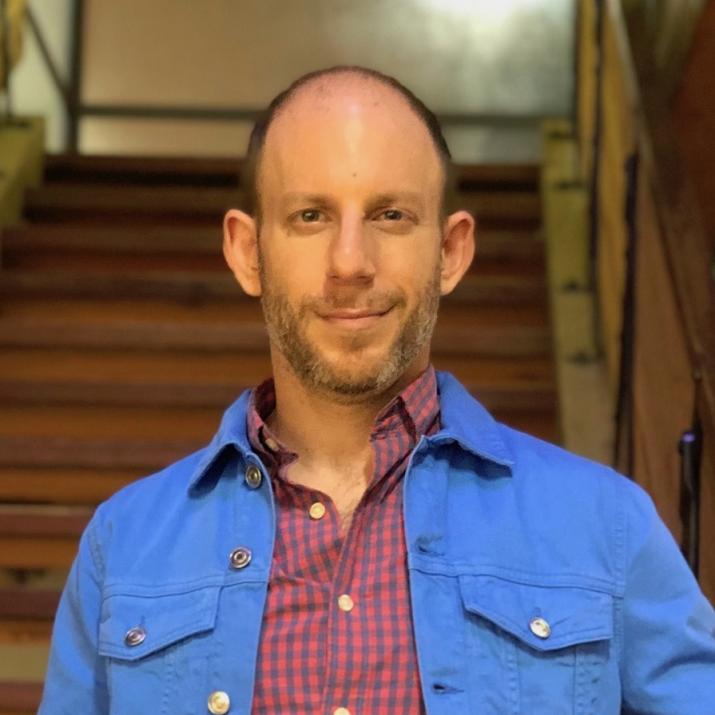Harris Solomon
Sally Dalton Robinson Professor
Professor of Cultural Anthropology
Research Professor of Global Health
Professor in Gender, Sexuality & Feminist Studies
Appointment:
Topics:
Countries:
Harris Solomon
Sally Dalton Robinson Professor
Professor of Cultural Anthropology
Research Professor of Global Health
Professor in Gender, Sexuality & Feminist Studies
As a medical anthropologist, I am interested in the dynamic relations between medicine and everyday social and political life. My work to date has primarily been based in urban India, but I also conduct research in the US.
My most recent work is a book project, entitled Lifelines: The Traffic of Trauma (Duke University Press, 2022). Lifelines is an ethnographic study of road and railway injuries and of trauma surgery. Its aim is to understand injury and movement as problems that must be thought together, and argues that medicine itself must be understood in terms of movements. It is based on five years of ethnographic research on traffic accidents in Mumbai, primarily in the trauma ward of one of the city's largest public hospitals. Lifelines tracks traumatic injury as the accident moves through different domains: the conveyance of accidents to the hospital, triage, surgery, the involvement of families and police, intensive care, autopsy, and recovery with disability after discharge. The research for Lifelines was supported by a CAREER Award (Faculty Early Career Development Program) from the National Science Foundation Cultural Anthropology Program.
Based on my research in the Mumbai trauma intensive care unit (ICU), and in the context of COVID-19, I am currently at work on a collaborative ethnography with colleagues in Critical Care at Duke Hospital and the School of Medicine. Funded by a National Science Foundation RAPID Award, our project, "RAPID: Healthcare Workforce Resilience in the Time of Covid-19," is an ethnographic study of conditions of adversity posed by COVID-19 to intensive care, and the creative responses ICU workers employ to adapt to them. Amidst the massive transformation in the US healthcare workforce due to the pandemic, the project examines COVID-19 as a problem of labor.
I also co-direct a collaborative project about the intersections between medicine and law. In line with that work, I have begun research for a new project about the landscape of medical malpractice and medico-legal activism in India.
My earlier work examined the dynamic conditions between bodies and environments in India. My first book is entitled Metabolic Living: Food, Fat, and the Absorption of Illness in India (Duke University Press, 2016, read introduction here). As India becomes increasingly portrayed as the site of a shift from infectious to chronic disease burdens said to accompany economic development, my research explores the phenomenon of metabolism as an ethnographic, biomedical, and political rubric. With India's rising rates of obesity and diabetes as its backdrop, Metabolic Living examines relationships forged between food, fat, the body, and the city of Mumbai. The book draws on ethnographic fieldwork carried out in Mumbai's home kitchens, metabolic disorder clinics, and food companies, to better understand what have been termed India's "diseases of prosperity."
I have also studied the development of corporatized medical care in Indian cities and its manifestation as medical tourism, and the politics of language and sexuality in India's HIV treatment clinical trials.
I situate both my research and teaching at the interdisciplinary intersections of medical anthropology, South Asian studies, science and technology studies, the medical humanities/social medicine, and global health. Prior to anthropology, I studied linguistics and public health, and worked on global reproductive health and HIV policy.
Projects
-
Traffic and Trauma in India
United States, India
-
Monsoon Science: Epidemiology in the Time of Climate Change
India
Publications
-
Solomon H. Stable condition: Traumatic injury, coma, and vital traffic in a Mumbai hospital ward. American Anthropologist. 2023 Jun 1;125(2):252–61.Navuluri N, Solomon HS, Hargett CW, Kussin PS. Distressed Work: Chronic Imperatives and Distress in Covid-19 Critical Care. Hastings Cent Rep. 2023 Jan;53(1):33–45.Navuluri N, Solomon HS, Hargett CW, Kussin PS. The pandemic is not the great equalizer: front-line labor and rationing in COVID-19 critical care. Public Health Action. 2022 Dec 21;12(4):186–90.David S, Roy N, Lundborg CS, Wärnberg MG, Solomon H. 'Coming home does not mean that the injury has gone'-exploring the lived experience of socioeconomic and quality of life outcomes in post-discharge trauma patients in urban India. Global public health. 2022 Nov;17(11):3022–42.
See more publications at Scholars@Duke


